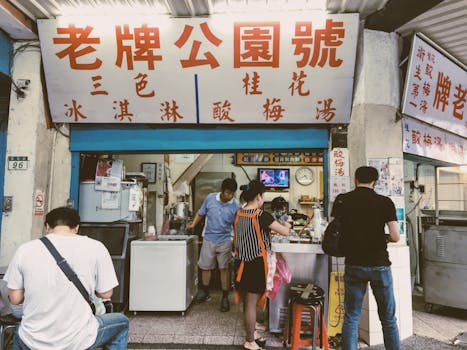Social media has revolutionized countless aspects of our daily lives, and travel is no exception. With platforms like Instagram, Facebook, and TikTok, travelers find inspiration and guidance at their fingertips. This article explores the multifaceted impact of social media on the travel experience.
From influencing destination choices to shaping travel itineraries, social media plays a significant role in how people plan and enjoy their trips. Additionally, users share their experiences through photos, videos, and stories, creating an intricate web of information. The synergy between social media and travel continues to evolve, affecting travelers and the tourism industry alike.
Understanding social media’s impact on travel is vital for travelers seeking richer experiences. It also helps businesses tap into the changing preferences of modern tourists. With this in mind, let’s explore the various ways social media influences travel.
Influence on Destination Selection
Social media shapes where travelers choose to go. Users often stumble upon breathtaking destinations through compelling posts and hashtags. These visual influences can spark spontaneous travel plans.
In recent years, social media campaigns by tourism boards have increased awareness of lesser-known destinations. Travelers now feel more encouraged to explore unique, off-the-beaten-path locales. This helps to distribute tourist traffic more evenly.
Additionally, reviews and recommendations on platforms like TripAdvisor influence whether a destination feels appealing. Travelers trust peer reviews over traditional advertising when selecting vacation spots.
As a result, a significant number of tourists find themselves drawn to locations that have trended on social media. This creates a positive feedback loop: more visitors lead to more social media exposure.
Overall, social media democratizes travel inspiration, allowing for a wider array of destination choices. Travelers no longer limit themselves to traditional tourist hotspots.
Shaping Travel Itineraries
Social media impacts how travelers structure their itineraries effectively. Platforms like Pinterest and Instagram allow users to save and organize travel ideas. These resources help in curating dream vacations based on visual content.
Furthermore, the rise of influencer culture is notable. Many travelers follow influencers whose travel experiences resonate with them. Thus, itineraries often reflect the travel styles of loved influencers.
This leads to a more personalized travel experience. Travelers can now explore destinations through the lens of influencers with similar interests. Consequently, itineraries become tailored to specific activities and experiences.
Moreover, social media facilitates real-time updates and changes. Travelers can monitor weather patterns, local events, and even dining options that trend online. This flexibility allows them to adapt or improve their plans.
Ultimately, social media encourages a more engaged approach to itinerary planning. Information is abundant, providing travelers with countless options for exploration.
Enhancing Travel Experiences through Visual Content
The proliferation of visual content significantly enhances travel experiences. Images and videos shared on platforms like Instagram serve as a preview of what awaits travelers. They inspire excitement and anticipation.
Travelers are now more inclined to take iconic photos or participate in trending activities. These moments often fuel additional excitement and Instagrammable experiences. Users enjoy sharing their adventures, creating a cyclical cycle of engagement.
In addition, photography offers a communal experience, connecting travelers with others who share similar interests. Hashtags can create online communities around particular travel experiences, fostering connections that last beyond a trip.
Moreover, locations that provide attractive backdrops for content often thrive. This incentivizes businesses in those areas to cater to social media enthusiasts, enhancing the overall tourist offering.
In sum, visual content enhances the emotional connection to travel, sparking both immediate enjoyment and lasting memories. This powerful medium continues to redefine tourist experiences.
Creating Online Communities and Travel Networks
Social media serves as a breeding ground for online travel communities. Such groups offer mutual support and shared experiences. They largely enhance the travel experience for individuals who seek connections.
Platforms allow travelers to gather tips, advice, and personal experiences from fellow explorers. These online communities can prove invaluable for solo travelers seeking companionship. Ultimately, they break down the barriers of isolation.
Beyond personal connections, social media enables networking opportunities among various businesses. Collaborations between influencers and travel companies result in enhanced exposure and content creation. This dynamic influences the way businesses engage with customers.
Special interest groups on platforms like Facebook and Reddit provide a wealth of knowledge. They allow travelers to seek assistance on specific needs or interests, broadening their experience. Authentic recommendations flourish within these environments.
In essence, social media fosters relationships both among travelers and within the travel industry itself. These networks support a richer, more connected experience for everyone involved.
Impact on Travel Trends and Consumer Behavior
Social media significantly influences travel trends and consumer behavior. Many travelers are actively searching for novel experiences. Unique adventures often gain traction through influential posts.
Seasonal travel trends also emerge from viral content. Travelers frequently book trips based on temporary interests, driven by social media exposure. Popular challenges or themes often dictate travel patterns during certain months.
Additionally, the demand for sustainable travel options has gained momentum. Influencers promote destinations that focus on eco-friendly initiatives. This inspires consumers to choose environmentally responsible options.
As travelers become more knowledgeable and ethical, businesses must adapt to these changes. They respond by offering diverse experiences that align with current consumer values.
Overall, social media has the potential to shape future travel trends. Businesses must pay close attention to these evolving consumer behaviors to stay competitive.
Social Media Influence on Reviews and Feedback
The role of social media in shaping reviews and feedback cannot be understated. Customers often turn to online platforms to share experiences, impacting a service or destination’s reputation. Positive reviews can lead to increased visibility.
Travelers today seek validation before making bookings. Peer reviews found on social media offer authentic insight into experiences. This enables brands to improve their offerings based on customer feedback.
Social media facilitates an ongoing dialogue between travelers and businesses. Responsive brands can build trust and loyalty by engaging with customers on these platforms. This interaction shapes their image in the competitive travel landscape.
Furthermore, consumers expect honesty and transparency from brands. Mistakes or misrepresentations can lead to public backlash, forcing companies to maintain high standards. This accountability is crucial for sustaining positive relationships with customers.
In summary, social media has fundamentally altered how reviews impact consumer decisions in the travel industry. Their power and reach make public opinion a critical factor in success.
Conclusion
The impact of social media on travel is significant and multifaceted. It influences everything from destination selection to itinerary building, visual content creation, networking, and consumer behavior. The contemporary traveler is empowered by a wealth of information, shaping a more personalized and engaging travel experience.
As businesses adapt to the changing landscape, they focus more on understanding their customers’ desires. Social media continues to evolve, promising to create even more opportunities and challenges in the world of travel.
In essence, the synergy between travel and social media enriches the industry and advocates for exploration. It fosters connections, inspires adventures, and ultimately transforms travel into a shared global experience.


